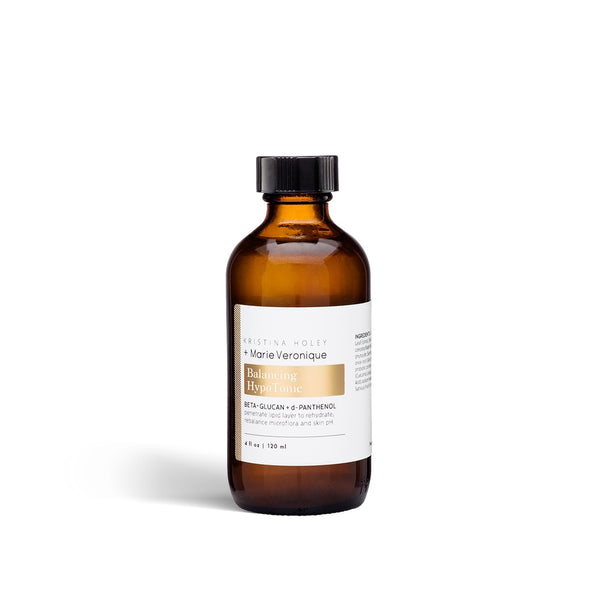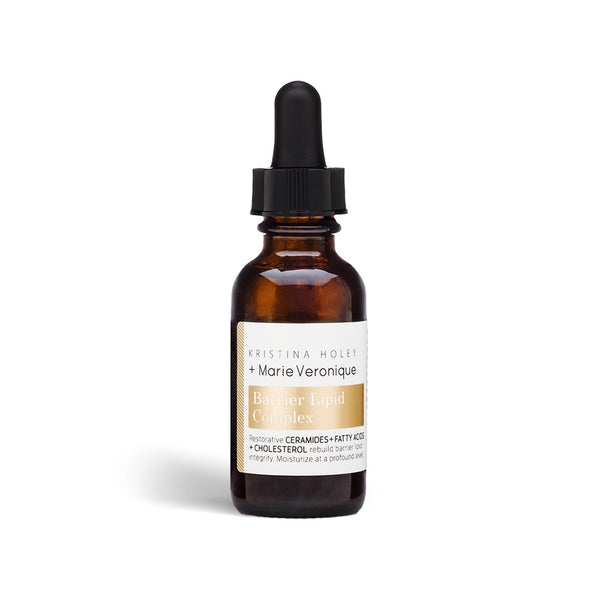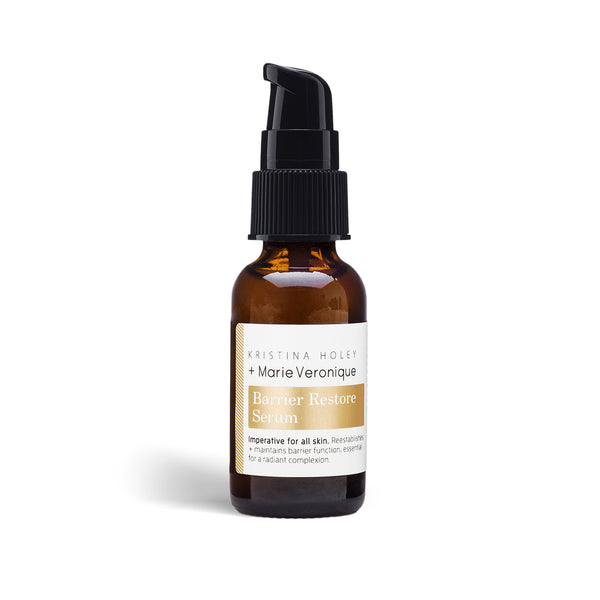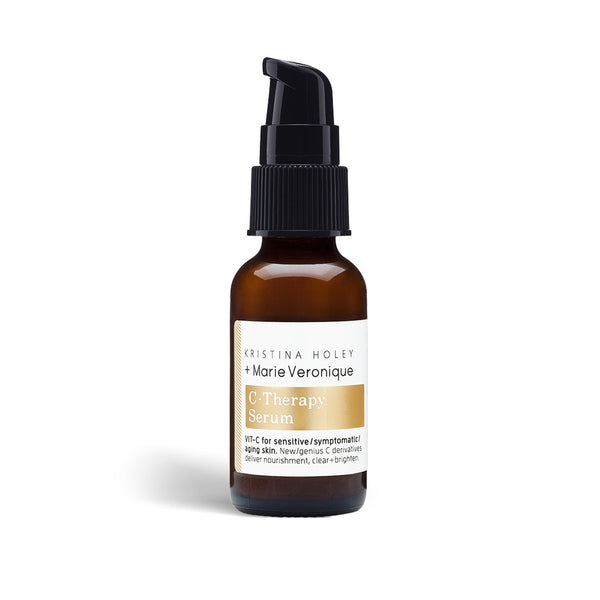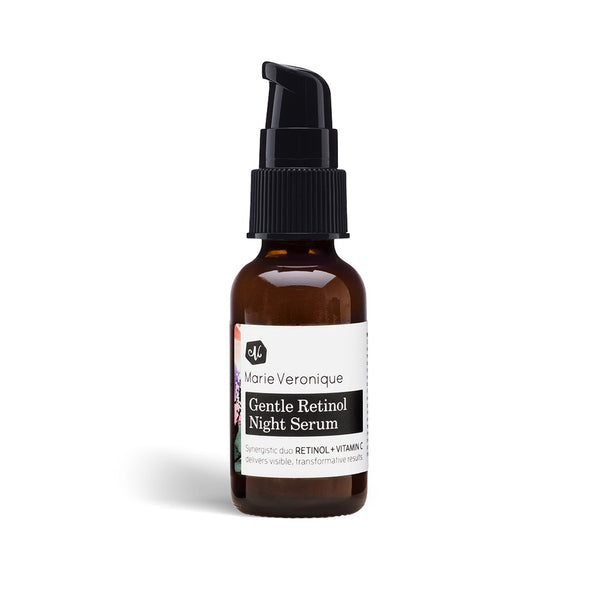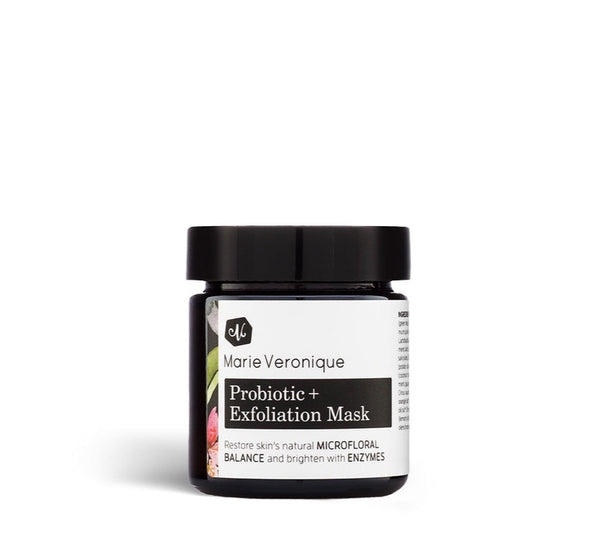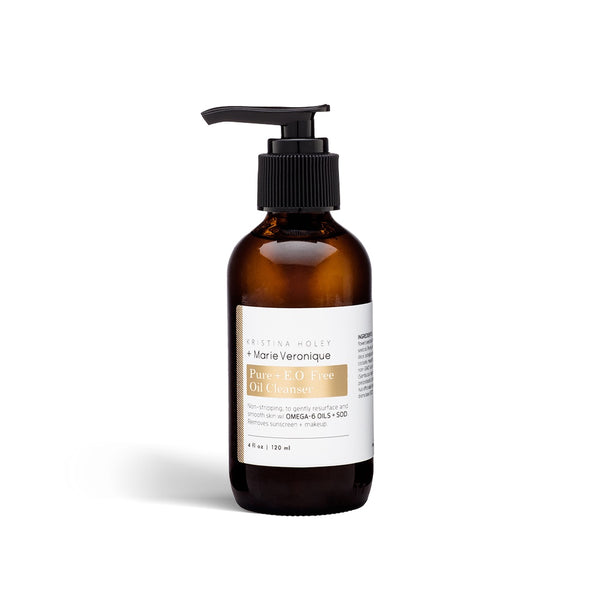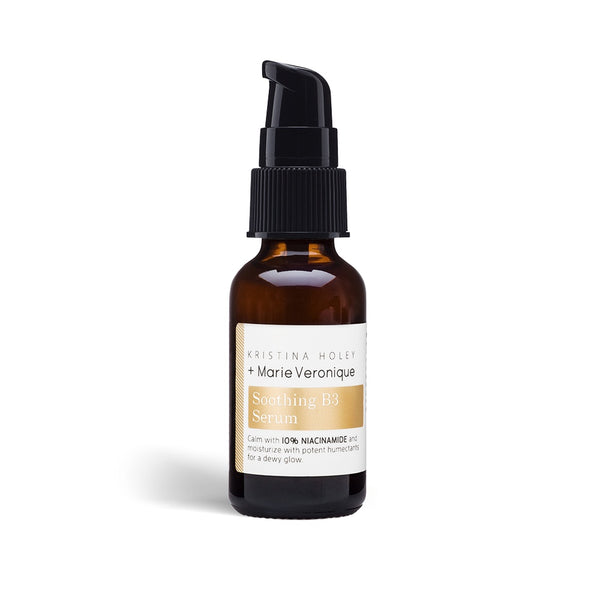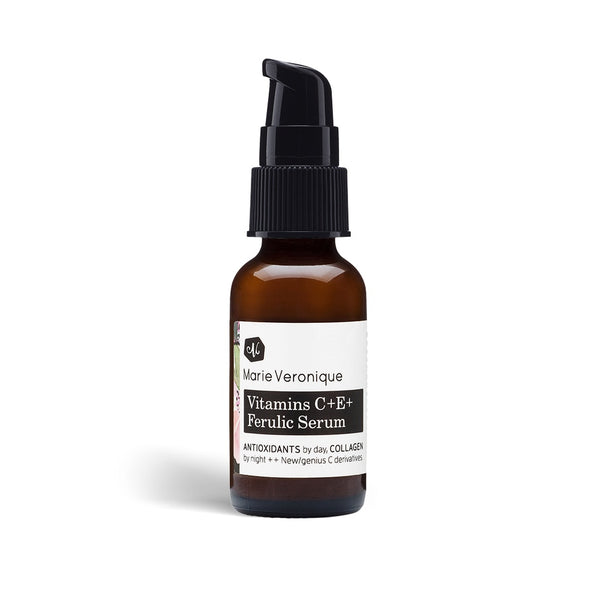What is Retinol made out of and how does it work?
Retinol is another term for Vitamin A, while the term retinoids refers to all the Vitamin A derivatives in the retinoid chemical family, which includes retinol, retinyl acetate, retinyl palmitate, retinyl proprionate, retinyl linoleate, retinal (retinaldehyde) and retinoic acid. Retinol (when the term is not being used as another word for Vitamin A) is the molecule derived from Vitamin A that in the skin is converted to retinaldehyde (RAL) and then to retinoic acid (RA). While “Retinol” as Vitamin A can be found in some plants and plant oils this is not the retinol that converts to retinoic acid. To be effective the derivative must either convert to retinoic acid or be retinoic acid; RA then attaches to retinoic acid receptors in skin cells, which effect cellular changes. Effective derivatives such as the retinol we use occur in nature but are synthesized in a lab.
Unfortunately, not all Vitamin A derivatives work the same way and it becomes confusing as all of the different derivatives of Vitamin A can be referred to as retinol. Only some retinoids (such as retinol) convert to retinoic acid which then perform cell repair functions. The ideal Vitamin A derivative is retinol because by being close to the end of the conversion chain the skin can convert it to retinoic acid as required, without causing irritation.
What does it do, and why do you recommend it?
It is the “skin normalizing” vitamin. It regulates cell development, collagen production/breakdown and sebum production, among a host of other activities. Forty years’ worth of studies attest to the benefits of using Vitamin A derivatives to prevent and even reverse photo damage (damage to the skin or DNA caused by exposure to ultraviolet light) and to control acne.
I, along with most dermatologists, recommend it because it is the gold standard when it comes to delivering skin health/acne control/age delay benefits that can’t be found in any other compound.
What are all the benefits of using retinol or retinoic acid?
- Inhibit collagen breakdown
- Normalize skin cell development
- Increase elasticity
- Increase collagen synthesis
- Improve water barrier function, induces compact stratum corneum
- Increase deposition of glycosaminoglycans in the dermis
- Increase cell turnover rate
- Control sebum production (excellent for treating acne and aging skin)
- Reverses photo-aging damage by inducing epidermal hyperproliferation (it's the only ingredient we know of that actually reverses the signs of photoaging)
- Proportional decrease in epidermal melanin (age spots) due to increase of normal cells
- Increases the deposition of collagen in the dermis
- Anti-inflammatory
- Boost circulation
What is the difference between Retinol and Retin-A? Is one better?
Retin-A is retinoic acid, which attaches to retinoic acid receptors in skin cells to effect change. It is sold by prescription. Retinol converts to retinaldehyde and then to retinoic acid and is OTC. Which form you use really comes down to how your skin reacts — in many cases people believe that their skin is too sensitive or intolerant to use retinoids at all because they experienced “facial retinization” (redness, irritation, peeling) with prescription-strength Retin-A (retinoic acid). Indeed, when retinoic acid causes facial retinization it is often misinterpreted as an “allergic reaction.” It isn’t, it’s just Vitamin A increasing cell turnover rate, but it happens at a pretty rapid rate. To avoid such reactions consumers can try a milder OTC retinol product which allows the skin to adjust and mitigate the potential facial retinization period. The derivative retinol that converts to retinoic acid will deliver the same effects as Retin-A, but it takes a bit longer. The upside is that the risk of irritation is greatly reduced when using a retinol.
The important thing to understand is that not all Vitamin A/retinoids are created equal. Retin-A will deliver skin benefits but it may cause irritation. Retinol has earned its top spot in the pantheon of skincare ingredients because it delivers the same benefits as Retin-A without the irritation.
Will it make me more sun sensitive? If I spend time at the beach should I still use it?
Yes, you can still use it, but be sure to wear zinc oxide only sunscreen of SPF 30 — which you should do anyway. As to increased sensitivity — while your skin is undergoing faster cell turnover you are less protected, so be aware of that. When you first start your retinoid protocol, stay in the shade for a few weeks.
Can everyone use it?
All retinoids should be avoided where the individual is pregnant, breastfeeding or trying to get pregnant.
Other than that I can’t think of a group that cannot use it, except people with issues such as rosacea or atopic dermatitis who should of course consult their dermatologists before using a retinoid. They can help you pick the retinol that’s right for you. The same applies if you are dealing with acne. You want your dermatologist to work with you in selecting the best retinoid for your needs, and they have the advantage of being able to offer from a wide range of prescription options as well as OTC products.
How often should you use Retinol?
Here are a few rules for the road.
- Retinoids should only be used at night as UV light may cause degradation.
- If you have sensitivity issues or have tried an Rx and didn’t like it, consider a “step-up program” for new retinol users. Start with using it 1-2 times a week, and as you can tolerate it move to 3-4 times a week.
- If you want results in a hurry you can still use an OTC retinol — it’s safe to use every night if you can tolerate it.
- Everyone should be aware that there may be a period of adjustment with some retinization and skin symptoms such as mild redness, dryness, mild irritation. For those using it for acne there may be some “purging.” This is normal and to be expected,
- Don’t give up! Some redness or irritation indicates that the product is working, and it will dissipate over time. You can use a moisturizer with the retinol to alleviate any discomfort due to dryness.
When do you recommend adding this into your routine? At what age?
At about age 30 your skin reaches optimal function — and then rates of hyaluronic acid production, collagen synthesis, and so on start to decrease. So a good place to start is about age 30. If you have problems with acne you may be advised by your dermatologist to start early with a tailored retinoid treatment, and that’s fine.
What are the effects when adding Retinol to a routine? Have you seen profound changes when people add it to their current lineup?
Since retinol is the only compound we know of that can actually reverse signs of photodamage it is a big deal. I can always tell when people are using a retinol (or not) by looking at them. The difference to my eye is about ten years younger with regular retinoid use, but of course that’s subjective and anecdotal. Nevertheless there are abundant studies that support significant age delay results with retinol.
Can it be used with other products? Is there anything to steer clear of when using Retinol?
It should be used with a Vitamin C serum so you get the full benefit of the collagen biosynthesis cycle (retinol sends the message to make collagen, but the rate of collagen production is determined by the amount of Vitamin C present in the skin cells). You might want to add an oil blend or a moisturizer to combat dryness.
Steer clear of too much exfoliation, especially with products containing the AHAs citric and/or glycolic acid. While retinol is regulating cell turnover rate it’s best not to interfere with it.
If you had to give a pitch to someone to encourage them to use Retinol, what would you say?
If you are interested in keeping your skin looking younger for longer then you NEED retinol. There is nothing else that will give you the same benefits (despite what marketers may claim) and there really is no downside to using it. If you have had problems in the past you just haven’t found the retinol that’s right for you, but there’s one for everyone, so keep trying. You will find it’s well worth the effort — nothing else will do as much for your skin as retinol. Nothing.

